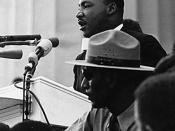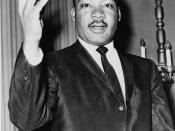Political commentator and author Richard Reeves tells this story about one of Walter Mondale's ill-fated campaigns for the U.S.
presidency.
Members of the working press covering the early primaries appeared to be favorably disposed toward the young U.S. senator from Minnesota. A product of that state's Democratic-Farmer-Labor tradition, Sen. Mondale had made a number of populist speeches, calling for welfare reform to address the enduring needs of the American poor. For weeks, his aides had promised release of a radical plan to recast the nation's welfare system, providing details of this major element of Mondale's campaign.
On the appointed day, the nation's news media flocked to a Minneapolis hall for the unveiling. In advance of the candidate's appearance, reporters were given elaborate press packets containing detailed descriptions of the welfare plan, complete with tax tables illustrating the depth of the federal income tax increases needed to finance it. Almost in unison, Reeves reported, reporters turned to a table that figured tax increases by personal income.
And almost as a person, they realized that experienced reporters in the 1970s earned incomes sufficient to number them among the targets in the Mondale plan. While newsroom mythology might place them on the side of the poor, elderly, downtrodden and other social underdogs, the new affluence of modern journalists linked them with other elements of middle class, established groups in American society. Mondale's support among the working press, Reeves recalled, drained from the Minneapolis hall that day and never returned.
An apocryphal story? Perhaps. Sen. Mondale had a creditable political life even without this press support, serving a term as vice president of the United States, losing a bid for re-election with Jimmy Carter, and losing again to Ronald Reagan in 1984 in his last hurrah. The story also is based upon an...


